Yucatan News: Bottled Water Alert
News Starting May 31, 2010
>
Germans in Yucatan
We get so used to the terms expat and gringo that we sometimes begin to treat them as if they are each some kind of generic nationality all their own. Then we see the surprise on strangers' faces when they learn that Yucatan has quite large populations of Koreans, Frenchmen, and Lebanese; and when we have a rather large Octoberfest celebration. But, until now, we had no way of answering the questions about how many of any of our ethnicities are living here. Well, that's all changed. We now know approximately how many Germans live in Yucatan, Campeche and Tabasco, courtesy of the German Consul who serves the area. First, we learn that the State of Yucatan is the Mexican state with the largest group of German immigrants in all of Mexico. Some are new to the area, but the families of some have been here for generations. Currently, it is estimated that there are 250 to 300 Germans living in the State of Yucatan, and their numbers are growing. There are approximately 100 German petrochemical workers now living in Campeche and, while there are no official numbers for Germans in Tabasco, the Consul is in contact with approximately 30 who are teachers or work for construction companies. Our thanks to the German Consul for these numbers. Now – if we could just get the numbers on the rest of us.
Work Continues on Century XXI Sports Complex in Uman
As each phase of the new sports complex at Uman is completed, work stops and there is a great celebration. The seats are up and contracts have been let to begin work on the roofs for the stands, a perimeter fence, and a children's soccer field. But never think that this sports complex is all that is happening in Uman. On the contrary, this entire area is being upgraded and is already appearing in local real estate listings. Who would ever have thought that little Uman, “way out there,” would be practically in Merida and that it would be one of the up and coming destinations for great places to live in Yucatan?
Runaway Market for Habanero Chile
In an economic system where the government provides start-up capital and initial operating costs, all should be well as production grows at a slow but steady pace. However, what happens when one product hits a worldwide home run and the government is already committed to other sectors and other projects as well as to this one? Farmers are left with too many customers and too little product. This is what is happening to the habanero chile growers in Yucatan. They have wonderful hydroponic greenhouses that produce 600, 400 and 200 tons each but they did, quite literally, hit a worldwide home run and cannot keep up with demand, even though their numbers have increased from 56 growers to 1,132! While the growers are worried about their image and the image of Yucatan, we want them to know that we are very proud of them and of the global elevation of their habanero chile. For more, read Yucatan Living's Habanero High Noon.
Hurry to Hunucma! An Invasion of Mangos!
If this isn't a mark your calendar for this time next year moment, we don't know what is! The beautiful white manila mango crop is in and it is not only huge, but pest free! Since not a lot of exporters know to go to Hunucma for mangos, expats and the people of Yucatan are the beneficiaries of this bounty all by ourselves for at least this harvest. We suspect that, by next year, the serious word will be out and exporters will abound. We are so glad to see the Hunucma area flourishing and wish them a successful year this year and an even better year in 2011!
Bottled Water Use Still Rising in Mexico
As Mexico modernizes all of its utility divisions, there is less need than ever for Mexicans to drink bottled water – but that isn't what the TV commercials say and, after all, everybody knows that trusted brands with pretty girls in the commercials would never lead consumers to a false conclusion – would they? Even though 85% of all the water in local water systems is now potable, Mexico no longer has drinking fountains in public places, including in schools. The Mexican people have so bought into the “don't drink the water” myth that they now drink more bottled water than the people of any other nation, and twice as much as Americans. This is not only unnecessary, but it is at the root of a growing mountain of empty water and soda bottles throughout Mexico. Since there are only a few places in the country where these bottles can be recycled, most people do not even bother to separate them for recycling. These bottles are a growing ecological menace and we would like to see some of our “green” readers take them on as a project. We are willing to bet there are some great ideas out there! According to Mother Nature Network, there are five reasons NOT to drink bottled water, not the least of which is that it supports the corporatization of water AND takes the focus off of improving public water systems.
The Trade Game: Who's On Top
If one is in the manufacturing business, the idea is to keep production, labor and transportation costs low so that end pricing doesn't rise to the point where people can no longer afford one's products. For a while, American companies in several industries could send raw materials to China, have their products built there, then ship them back – and still make a profit. Unfortunately, the price of transportation went through the roof, leaving China in the lurch. U.S. companies moved manufacturing to Mexico to lessen transportation costs. China actually manipulated their money so that Chinese labor would take the hit caused by increased transportation costs and so they could get their U.S. manufacturing customers back. In the meantime, all of Mexico went to trade school and/or college (at least it felt that way) and turned out some of the finest industrial, manufacturing, and management workers in the world. Mexico also courted foreign investment in the manufacturing of high-end, complex products – such as refrigerators from Whirlpool and Dodge Ram trucks from Chrysler. Until now, the largest sources of foreign goods to the U.S. were Canada, China and Mexico, in that order. But now, Mexico has surged ahead of China and is expected to surpass Canada within 15 years. A weak peso during this past year has also helped many an investor make up their mind to move to Mexico.
New Home Away from Home for Patients and Families
A new hostel, within walking distance of Star Medica, is underway. Its purpose is to provide not only a place for poor patients and their relatives to stay during treatment, but also as a place where their emotional and spiritual needs can be met. It sounds much like the Ronald McDonald House concept, and is something that has long been needed in this area. During the actual construction process, patients and relatives are being housed in private homes and are also being given food stamps to ease the financial burden of a lengthy stay far from home. Each year, we see giant leaps forward in Yucatan's development as one of the best places in the world to live. If anyone would like to be of assistance to these travelers, or if you are in need of these services, the best place to begin would be with a call to the hospital or to St. Vincent de Paul.
The Potters and Shoemakers of Ticul and Muna
Frustrations are beginning to mount as the potters and shoemakers of Ticul and Muna see their incomes continue to dwindle. As some see it, their current difficulties are due to a drop in tourism due to problems in Mexico (drug war, H1N1, etc), so they want Mexico to pay for a central market for their wares. Others want the state to provide the market, while still others say they don't want a market at all because of the expenses associated with mall-type security, employees, and transportation of their goods to a central location with dwindling numbers of visitors. Needless to say, negotiations for a resolution to their problem ground to a halt. In the meantime, artisans are suffering and there is something that expats can do. We can visit the Ticul and Muna areas and spend our pesos on some of the prettiest pottery in the world. ...and who knows? Some enterprising expat just might talk a disbelieving shoemaker into making shoes in sizes that fit large gringo feet... it could happen.
Valladolid: Military Exchange
It is with a heavy heart that Valladolid, after 14 peaceful years, bids goodbye to the 9th Motorized Cavalry Regiment from Atlixco, Puebla. Many have married into local families and have bought homes in the area. However, Mexico has decided to swap them out with a regiment from Ciudad Juarez, Chihuahua. We welcome the young men from Ciudad Juarez. There is much of value to be gained from living in Yucatan and this exchange is one of the best ways we can think of to spread a strong culture whose values still lead in a positive direction. Perhaps Yucatan really can change the world, one child at a time, one exchange student at a time, one visitor at a time, and now one soldier at a time.
Mayan Seed Exchange Now Taught at Tizimin Institute of Technology
One of the biggest concerns about genetically engineered crops is that they are strong and healthy. They spread fast and, some believe, they will push out native varieties of all food plants throughout the world. When this happens, there will be one strain of each food plant. If anything comes along and attacks that strain, there will be nothing to fall back on and worldwide starvation will be the result. We have always felt a little better about food security in Yucatan because we know there is a Mayan tradition in which the native seeds are protected and passed on from one caretaker to the next in a ritual ceremony. Since this ceremony had largely been abandoned in eastern Yucatan, the Fundacion Produce Yucatan, AC will now be funding a program that encourages the rekindling of this practice but, this time, between the Mayan farmers of eastern Yucatan and the agricultural students of Tizimin Institute of Technology. Another very useful website on this issue is the Mayan Seed Ark Project.
Tropical Storm Agatha: Death Toll Rising
As of this writing, there have been 63 deaths in Guatemala due to the “only” 75 mph winds associated with Tropical Storm Agatha. The reason for these deaths, for the most part, is mudslides and sink holes. This is the reason we all fight so hard to save every tree we can. When there is nothing between us and a storm, and nothing to hold the earth together anymore, there is no place to hide. Sadly, many areas in Central and South America face this same potential fate. Anytime you can help in a reforestation project, we hope you too will plant, and then hug a tree. Our deepest sympathy to the families of the victims of this first summer storm of the year.
Hurricane Season 2010: Loop Currents
...and so it begins. 2010 is projected to produce 15 tropical storms, with at least 4 turning into hurricanes of category 1 or 2 and four more of category 3, 4 or 5. According to the Mexican Navy and other international officials, Yucatan is safe from the effects of this oil spill, mostly because of the Loop Current that threatens to take oil from this spill around the coast of Florida. However, there are regular Loop Current Rings that break away from the Loop Current, drift northward toward the U.S. shore, then slowly drift southwest toward Texas and Mexico. It was one of these break-away Loop Current Rings that provided the tremendous energy that resulted in hurricanes Katrina and Rita so, one look at Katrina's map and you can see that the break-away rings are capable of producing hurricanes that cover the entire Gulf Region, including Yucatan. The Deep Water Horizon well itself is located due north, across the Gulf of Mexico, from the Municipality of San Felipe. Unfortunately, Yucatan's Northern Shelves (underwater) reach almost half the distance from the shores of San Felipe and the well, placing us far closer to the effects of this spill than is comfortable. This is not to frighten anyone, but it is to ask that everyone who lives in any state or nation that borders the Gulf of Mexico to please stay in touch with your own politicians. Keep the pressure on them and on BP to get this well stopped and the oil cleaned up as soon as humanly possible. Since late August and early September traditionally bring the worst of the hurricanes, this well has the potential to become far more destructive than anyone ever imagined...and that includes the potential destruction caused by the acid rain that has already begun to fall along the coast of Louisiana.
Best Website This Week
Trovadores Yucatecos is the best website on the net to find the lyrics to all of the trova oldies, as well as biographical information on many of the trova greats. The site is owned by Yucateco Trovador Felipe Garcia and every page is worth visiting. We gladly recommend it and are very happy to introduce new readers to the style of music that is so dear to the heart of Yucatan.




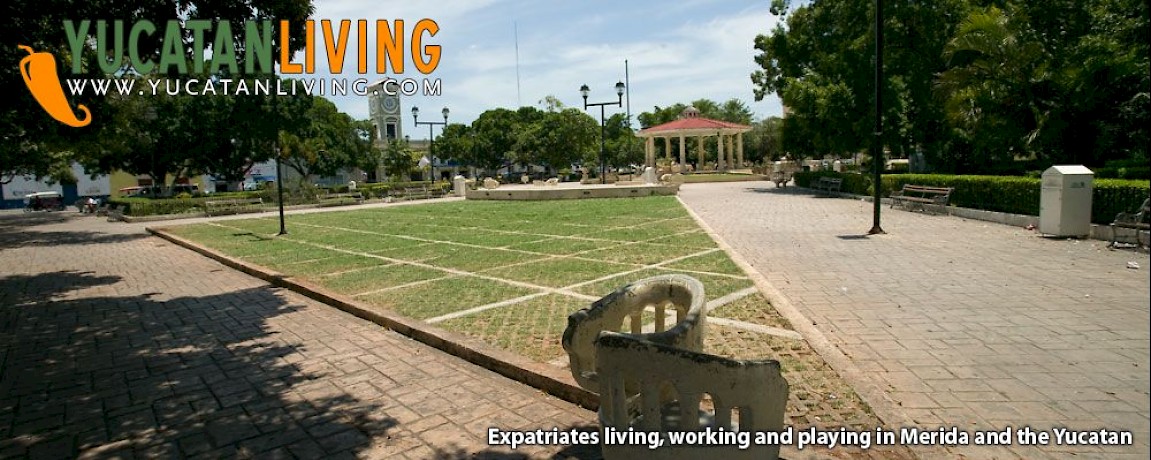



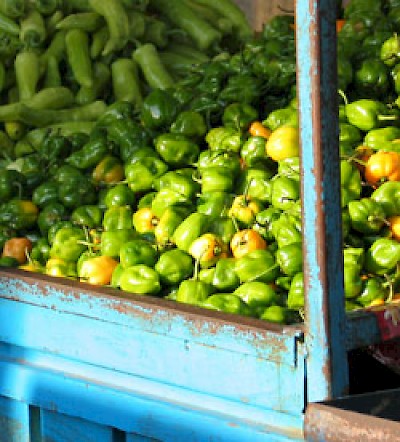
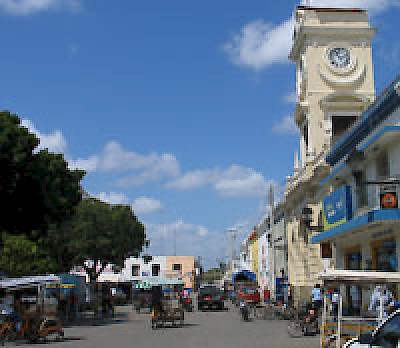
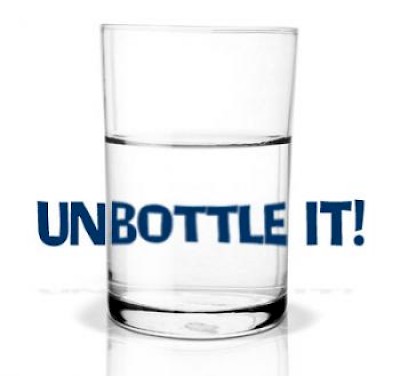
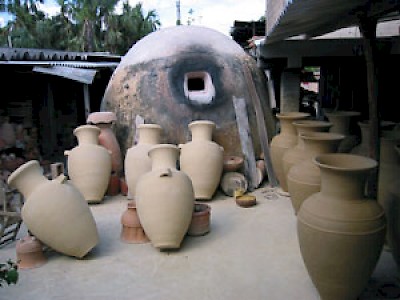
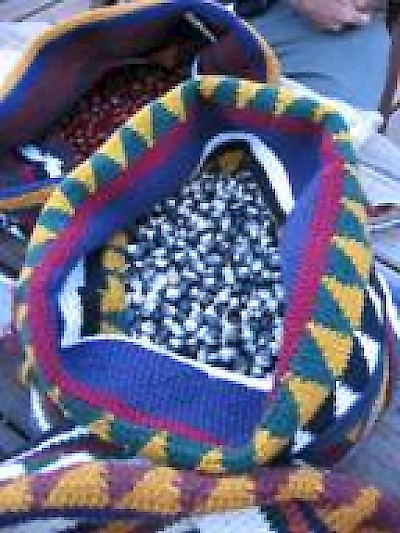



Comments
CasiYucateco 16 years ago
The black tinacos you see (and the beige ones) are made of fiberglass with an appropriate safe internal finish. They do not change the character of the water in any way as they are non-reactive and non-leaching. As the Working folks say, that's not water for drinking. But the tinaco doesn't change the water quality unless you leave the lid off.
Reply
Working Gringos 16 years ago
Randi, you may not have ever felt menaced by a plastic bottle, but take a drive into the Yucatan countryside sometime, and notice all the plastic bottles on the side of the road. The trash created by the plastic bottles is the menace we are referring to, in addition to the trace elements from the plastic itself that gets into the bottles, and then into your body.
Brenda, we don't drink the water that comes from the tinaco generally. We either drink from a garrafon (the large water bottles) or from our tap that is connected to an osmosis system for purifying the water. The purified water does NOT taste like rubber.
Reply
Brenda Thornton 16 years ago
I have wondered what effect the tinacas have on water quality, since they appear to be made from some form of rubber. Does it make the water taste like rubber?
Reply
Khaki Scott 16 years ago
Casi - carrying bottled water when we leave home is a better idea than you may think - especially for expats who are driving back NOB from Yucatan with pets. On my first trip back, my dogs refused to drink even bottled water in a couple of the Mexican states between Yucatan and the border. I tasted it and it was VERY "salty." Dunno what was up with that, but - on every trip since then - I have carried enough water to last several days for them and for me.
Reply
Brenda Thornton 16 years ago
As someone with a compromised immune system, I am quite cautious about water and drinks, as well as food.
However, my husband and I have purchased several stainless steel, insulated water bottles and we try to fill them with safe water and take them with us. The plastic bottles for water are not good for the environment and they use petroleum. All of us need to reconsider our lifestyles and what we do, and we can stay safe without using bottled water.
There are inexpensive water systems which should make any water supplied via metropolitan water systems within Mexico, and being able to fill up a reusable bottle and feel safe, while helping the world we live in should make anyone feel good about their choice. Besides, purchasing a large stock pot and boiling water for kitchen use and reusable bottles is very inexpenive.
Reply
CasiYucateco 16 years ago
One thing we can all do regarding bottled water is to insure we carry our own supply from home, in either aluminum or stainless steel or "bad-chemical-free" plastic reusable water bottles. And carry sufficient supplies for the heat, particularly for first time visitors and folks who have not yet acclimated to the heat.
That prevents the need to buy bottled water on the road. You can still buy some peanuts or chips or something if you want to help the local vendors, but won't contribute to the privatization of water supplies and the horrible pollution problems caused by all those empty little plastic bottles.
Reply
Randy 16 years ago
I agree with Ian. If your figure is correct, 15% of water systems are contaminated. That means you have about 1 chance in 6 of drinking contaminated water. I don't like those odds, and I will continue to drink bottled water. I agree that it would be better to reuse or recycle containers, but asserting the containers are "a growing ecological menace" is alarmist. I've never felt menaced by a plastic bottle.
Reply
Working Gringos 16 years ago
Ian, we don't disagree with you necessarily. But we do feel it is a growing issue and one that everyone should be aware of. We have read recently in the US the municipal and government-run water supplies are tested at least daily. But the water going into bottles is not tested by the FDA even annually. So, that's one thing to take into consideration. Here in Mexico, we installed a water purifier at our sink and drink our water from that, and of course, from the garrafones.
Reply
Ian 16 years ago
Re: Bottled Water Alert
I'm not usually cautious when it comes to food hygiene. For example, I eat from street vendors and don't use antibacterial kitchen products. But having lived in Quintana Roo for 7 years, I would question the drinkability of the water coming out of local taps and personally don't even brush my teeth with it.
CAPA (the federal water supply agency) does a great job, but even if the supply from the street is drinkable, the storage methods in many buildings are still far from sanitary. Anyone that has climbed up on to their roof to check the tinaco (black plastic water deposit) would probably agree with me.
With a new tinaco with a good lid, it is quite possible that bugs and small lizards can get in and die in the water inside. Of course, you can clean and sterlize frequently with chlorine tablets, but what guarantee do you have that this has been done? (And this is just one example of the fallibility of typical plumbing standards.)
Regarding the environmental problem of bottles, the answer is simple: buy the 20 litre refillable "garrafons".
I look forward to the day when tap water is drinkable, but I think your claims are a little premature...
Ian
Reply
(0 to 9 comments)